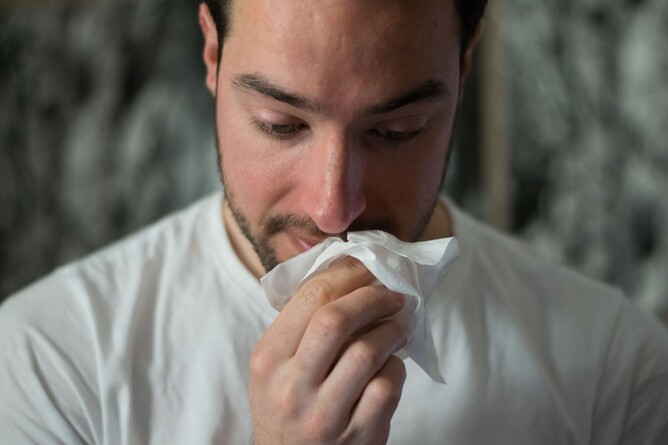How to Reduce Sick Days - The Unexplored Power of Holistic Strength
Being sick is a part of life; it’s a way our bodies tell us that something is off balance. But when our workforce falls ill, productivity decreases, and it can have a significant impact on an organisation's bottom line. If you're a corporate leader looking to improve the health and productivity of your team, you've landed on the right page.
As a National Disability Insurance Scheme (NDIS) accredited exercise physiologist and the founder of Holistic Strength, I’ve worked with a diverse range of individuals, helping them realise their potential through strength training, rehabilitation, and wellbeing advice. Today, I'm here to talk about the connection between physical fitness, mental health, and reducing the number of sick days in your organisation.
One of the main culprits for increased sick days is chronic illness, which can often be prevented or managed through a regular exercise routine. Many people underestimate the power of regular, consistent physical activity on their overall health. It's not just about building muscles or losing weight – it's about building a stronger, more resilient body that can effectively ward off illness and recover faster when illness does strike.
It’s important to understand the benefits of exercise extend beyond physical health, positively affecting mental health as well. Regular physical activity has been shown to reduce stress levels, improve sleep quality, and even boost mood, all of which are integral to maintaining a healthy, productive workforce.
In today's modern world, most corporate jobs require long hours sitting in front of a computer. This sedentary lifestyle, coupled with stress and often poor dietary choices, is a ticking time bomb for chronic conditions such as diabetes, heart disease, and obesity. Incorporating regular physical activity into the daily routine can mitigate these health risks.
However, it's not enough to simply encourage your employees to hit the gym a few times a week. The key is to promote a holistic approach to health – a combination of physical exercise, a balanced diet, and mental well-being strategies. Here at Holistic Strength as expert exercise physiologists, we promote three key strategies that organisations can implement to encourage a healthier lifestyle:
Creating an Active Workplace Environment: Start by creating a physical environment that encourages movement. This could be as simple as standing desks, communal areas that are more distant encouraging walking, or facilities for activities like yoga or cycling.
Promoting Healthy Eating Habits: Partnering with a nutritionist to provide education sessions, or providing healthier food options in the canteen can go a long way towards promoting better dietary habits. Remember, what we consume has a significant impact on our physical health, mood, and cognitive function.
Encouraging Mental Well-Being: Mental health is as important as physical health when it comes to reducing sick days. Encourage open conversations about mental health, provide resources for stress management, and consider bringing in professionals for workshops or counselling sessions.
These strategies don't just lead to fewer sick days; they also result in a happier, more engaged workforce. Employees who feel their health and wellbeing are valued tend to be more loyal, motivated, and productive.
Implementing these strategies might seem like a big commitment, but remember – it's an investment in the health and productivity of your workforce, and ultimately, your organisation's success. With the right approach, businesses can transform their workplaces into environments that foster physical and mental health, and watch as the ripple effects boost overall productivity and reduce sick days.
As an exercise physiologist, I've seen firsthand the incredible power that regular physical activity and a holistic approach to health can have on individuals and teams. It's not just about reducing sick days – it's about promoting a culture of health and wellness that empowers your employees to be their best, both in and outside of the workplace.
We at Holistic Strength are here to help. Whether you're looking to implement an exercise program, need advice on creating a healthier workplace, or want to learn more about the holistic approach to health, don't hesitate to reach out. We're committed to helping businesses build healthier, more productive teams.
Remember, the most significant wealth is health – and a healthy workforce is a wealthy workforce. Here's to fewer sick days and more vibrant, energetic, and productive days at your organisation.
